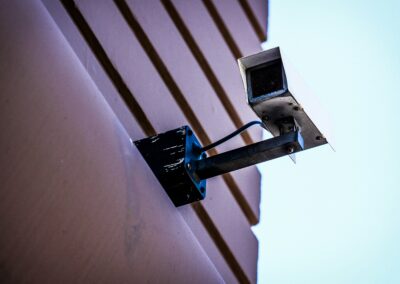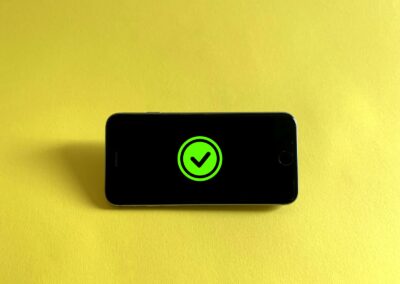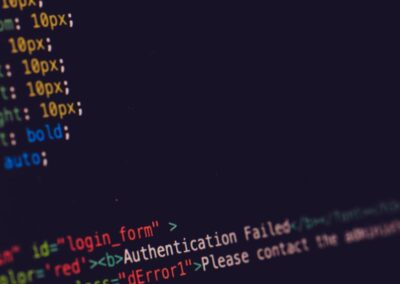Exposing Security Gaps in IoT-Based Smart Locks
The Vulnerability of Smart Lock Systems
Securing smart locks in IoT is critical to prevent unauthorized access and ensure the safety of properties and sensitive data. In regions like Saudi Arabia and the UAE, where smart technology adoption is accelerating, the security of IoT-based access control systems, such as smart locks, is of paramount importance. Recently, the exploitation of a popular smart lock system highlighted significant security gaps, raising concerns about the overall robustness of IoT devices.
The exploitation incident revealed that many smart locks were vulnerable to hacking due to weak encryption and insufficient authentication protocols. Hackers could intercept and decode communication between the smart lock and the controlling device, gaining unauthorized access with relative ease. In Riyadh, where smart homes and offices are increasingly common, such vulnerabilities pose significant risks, including unauthorized entry, theft, and data breaches.
Moreover, the lack of regular firmware updates and security patches exacerbates these vulnerabilities. Many smart lock manufacturers fail to provide timely updates to address emerging security threats, leaving devices exposed to exploitation. In Dubai, where IoT technology is integral to smart city initiatives, ensuring that all IoT devices, including smart locks, receive regular updates is crucial to maintaining security and public trust.
Key Practices to Secure Smart Locks
To mitigate the risks associated with smart lock vulnerabilities, organizations and individuals must adopt best practices for securing IoT devices. One essential practice is to implement robust encryption methods for data communication between smart locks and controlling devices. Advanced encryption standards (AES) and secure communication protocols (such as TLS) ensure that data transmitted over the network is protected from interception and tampering.
Regular firmware updates and security patches are also vital for maintaining the security of smart locks. Manufacturers should establish a clear update policy and provide users with timely notifications about available updates. Users, on the other hand, must ensure that their devices are always running the latest firmware versions. In Saudi Arabia, businesses and homeowners using smart locks should prioritize devices from manufacturers that demonstrate a strong commitment to security updates.
Additionally, multi-factor authentication (MFA) can significantly enhance the security of smart locks. By requiring multiple forms of verification (such as a password and a biometric scan), MFA adds an extra layer of protection against unauthorized access. In Dubai, implementing MFA for smart lock systems can help safeguard properties and sensitive information, reducing the likelihood of successful attacks.
Case Studies: Strengthening Smart Lock Security
Several organizations in Saudi Arabia and the UAE have successfully implemented strategies to secure their smart lock systems, demonstrating the effectiveness of these practices. For instance, a tech company in Riyadh adopted advanced encryption and MFA for its office smart locks. This approach not only prevented unauthorized access but also ensured that all access attempts were logged and monitored in real-time, providing valuable insights into potential security threats.
In Dubai, a luxury apartment complex integrated regular firmware updates and robust encryption into its smart lock systems. The management team worked closely with the lock manufacturer to ensure that all devices received timely security patches, reducing the risk of exploitation. This proactive approach significantly enhanced the security of the complex, providing residents with peace of mind and fostering trust in smart technology.
Another notable example is a retail chain in the UAE that implemented a comprehensive IoT security policy for its stores, including smart lock systems. By combining advanced encryption, MFA, and regular updates, the chain effectively protected its assets and customer data. This holistic approach to IoT security not only improved operational efficiency but also strengthened the company’s reputation for reliability and innovation.
Best Practices and Future Directions in IoT Security
Implementing Continuous Monitoring and Threat Intelligence
Continuous monitoring and threat intelligence are critical components of a robust IoT security strategy. By continuously monitoring smart lock systems and other IoT devices, organizations can detect and respond to security incidents in real-time. This proactive approach enables businesses to address vulnerabilities before they can be exploited, significantly reducing the risk of cyberattacks.
Threat intelligence services provide valuable insights into emerging cyber threats and vulnerabilities. By leveraging these services, organizations can stay informed about the latest security risks and take proactive measures to protect their IoT devices. For example, a financial institution in Riyadh can use threat intelligence to identify potential threats to its IoT-enabled security systems and implement appropriate countermeasures.
Moreover, integrating continuous monitoring with automated response mechanisms can enhance IoT security. These systems can automatically apply security patches and updates based on real-time threat intelligence, ensuring that smart locks and other IoT devices are always protected against the latest threats. In Dubai, businesses can leverage this integration to secure their IoT networks and protect sensitive data from cyberattacks.
Enhancing Security Awareness and Training
Security awareness and training are crucial for ensuring the security of IoT devices, including smart locks. Organizations must educate their employees and customers about the importance of IoT security and provide training on best practices for managing IoT devices. This training should cover topics such as recognizing phishing attacks, securing IoT devices, and adhering to security policies.
Regular training sessions and workshops can help employees stay informed about the latest security threats and best practices. By fostering a culture of security awareness, organizations can ensure that all stakeholders play an active role in protecting IoT devices and networks. For example, a manufacturing company in Riyadh can conduct regular training sessions to educate its staff about the importance of securing smart locks and other IoT devices.
In addition to training, organizations should implement clear policies and procedures for IoT security. These policies should outline the roles and responsibilities of employees in managing IoT devices and ensure that everyone understands their role in maintaining security. In Dubai, businesses can develop comprehensive IoT security policies that cover all aspects of device management, from deployment to decommissioning, ensuring a consistent and secure approach to IoT integration.
Conclusion: The Path to Secure Smart Locks
As IoT technology continues to evolve, securing smart locks and other IoT devices will remain a top priority for organizations and individuals. By implementing robust security measures, such as advanced encryption, multi-factor authentication, and regular updates, businesses in Saudi Arabia and the UAE can protect their IoT systems from cyber threats. Leveraging continuous monitoring and threat intelligence, organizations can proactively address security risks and maintain the integrity of their IoT deployments.
In conclusion, securing smart locks in IoT is essential for protecting properties and sensitive data from unauthorized access. By adopting best practices for IoT security and enhancing security awareness, organizations can safeguard their IoT devices and networks. As the technological landscape continues to evolve, businesses that prioritize IoT security will be well-positioned to achieve long-term success and maintain a competitive edge in the digital age.
—
#IoTSecurity #SmartLocks #AccessControlVulnerabilities #SecuringIoTDevices #BusinessSuccess #ModernTechnology #LeadershipSkills #ProjectManagement #SaudiArabia #UAE #Riyadh #Dubai #ArtificialIntelligence #Blockchain #TheMetaverse #ExecutiveCoachingServices #GenerativeAI































